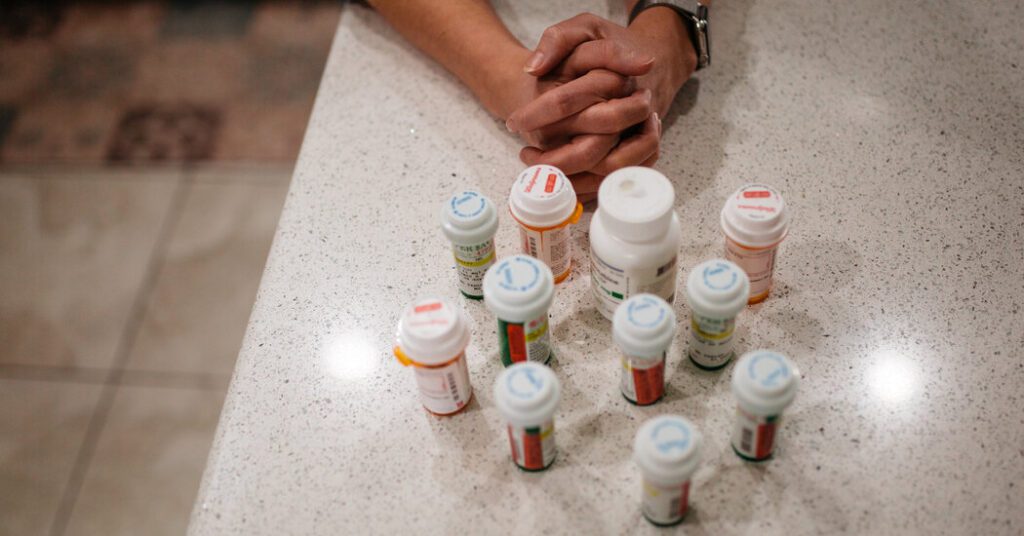The Biden administration proposed Tuesday removing medical debt from the credit reports of more than 15 million Americans, saving millions. Qualify for auto loans, mortgages, and small business loans.
The proposed rule, which will go through a public comment period and will not take effect immediately, would prohibit health care providers from sharing medical debt information with loan providers and would prohibit loan providers from taking medical information into account when making loans.
Vice President Kamala Harris said the measure would improve “the economic health and well-being of millions of Americans.”
“One of the most significant consequences of having medical debt is the negative impact it has on an individual's credit score,” Harris said. “Medical debt makes it harder for millions of Americans to get approved for auto loans, mortgages and small business loans, making it difficult for them to even get by, let alone get ahead. This is simply unfair.”
Medical debt often has a major impact on Americans' lives, with an estimated 20 million people owing health care providers more than $250. Black and Latino Americans are more likely to report unpaid bills, as are those who are low-income or uninsured. Surveys have shown that Americans are taking out loans or working overtime to pay off their debts.
The economy and inflation underwhelmed voters during Biden's first term, making his administration's efforts to contain costs a focal point of his reelection campaign. Aides believe measures such as lowering the prices of prescription drugs like insulin and inhalers have already resonated with voters and will help boost perceptions of Biden's domestic policies. The president has also relied on those economic accomplishments to convince voters of color in his base that he has delivered on racial equality policies, even as his broader proposals have been blocked by the courts.
The policy likely won't go into effect until early next year, according to a government official who spoke on condition of anonymity to discuss details of the proposal. Public comment is due by Aug. 12.
Harris said the proposal is part of a broader White House effort to address medical debt. The administration has forgiven $650 million in medical debt so far. The new policy doesn't relieve medical debt, nor does it stop all aggressive collection tactics. It only affects information about unpaid debt that health care providers sell to collection agencies.
But the Biden administration plans to pitch the rule as a way to help Americans gain more economic freedom.
Consumer Financial Protection Bureau Director Rohit Chopra said Tuesday that an investigation conducted by an independent federal agency in 2022 found that medical debt collections appeared on 43 million credit reports.
“It doesn't eliminate the underlying medical debt that consumers incur,” said Fredric Brabin, a senior fellow at the Urban Institute. “It attacks the symptoms, not the root causes.”
Blevins said he expects the policy will benefit consumers who need better credit scores to rent apartments or buy cars, but he said it could have unintended consequences. For example, because hospitals no longer have the recourse to report to the credit bureaus, they may be more likely to try to collect debts in other ways, such as suing patients, garnishing wages or cutting off care.
“It's unclear what the impact will be,” he said. “If hospitals know they can't use this tool, they may be more proactive in collecting data themselves in the first place.”
Tens of billions of dollars of that debt is held by collection agencies, which hospitals often send to collection agencies bills that patients haven't paid for months or years. These debts can have a devastating effect on patients' credit scores for decades.
That's changed dramatically in recent years, with the three national credit reporting agencies — TransUnion, Equifax and Experian — removing many of these debts from credit reports. Over the past two years, the agencies have stopped reporting debts under $500 and debts that have been collected for less than a year.
These changes have caused medical debt to disappear from millions of Americans' credit reports, according to a recent study from the Urban Institute. The percentage of Americans with unpaid medical debt on their credit reports fell from 12% in August 2022 to 5% in August 2023.
According to a study by the Urban Institute, Americans who had medical debt removed from their credit reports during that period saw their credit scores increase by an average of 30 points, moving them from the “subprime” range towards “prime” credit.
Still, about 15 million Americans have $49 billion in unpaid medical debt on their credit reports, according to a study by the Consumer Financial Protection Bureau, the government agency that enforces the new rules.
These patients are the ones who stand to benefit most from the Biden administration's policies.
“You can make a fair argument that credit reports should reflect bad behavior, not bad luck,” says Neil Mahoney, a Stanford University economist who studies medical debt. “Medical debt is often the result of, 'My kid broke his arm, and I was unlucky, and now I have a bunch of bills.'”
Mahoney published a study this year that looked at the impact of not just stopping reporting medical debt to credit bureaus, but eliminating it altogether, and the results were startling: The vast majority of patients saw no improvement in their credit scores or access to care.
But there was a small group of patients who saw improvement: those with only medical debt on their credit reports and no other types of outstanding loans or bills. For that group, the Biden administration's policies are likely to matter most, Mahoney said.
“Some people will benefit,” Mahoney said, “but for those who are already in financial difficulty, the impact on access to credit will be limited.”
Stacey Cowley He contributed reporting from New York.

